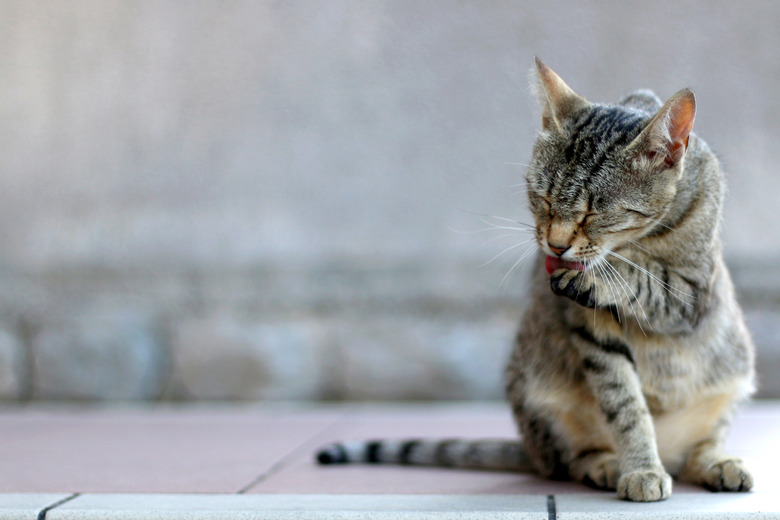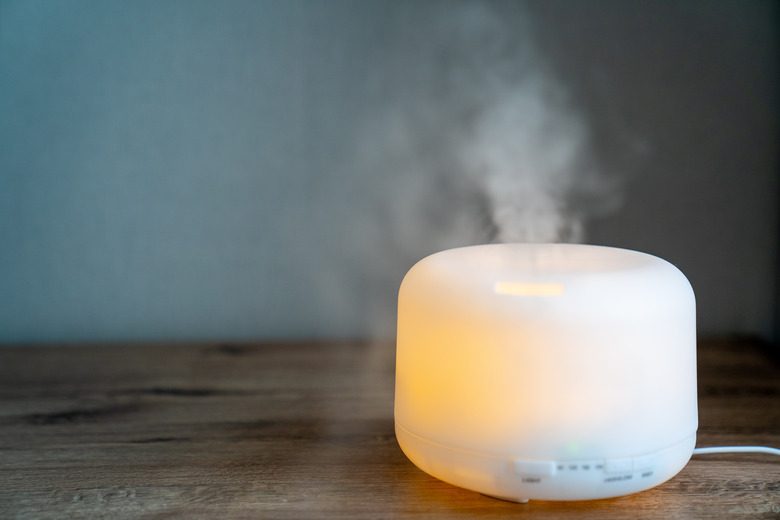How To Treat Dry Skin On Cats
Many pet parents wonder how to treat skin problems like dryness on cats. While cats spend a huge portion of their day grooming themselves, they can still be prone to dry and sensitive skin, which can lead to discomfort and make them feel irritable and itchy. Dry skin can also lead to more shedding, hair loss, and dandruff, which can be a problem for cats and is an allergen for some people. First, consult with a veterinarian to be sure your cat's dry skin is not a symptom of a more serious health condition, like diabetes or an allergic reaction. If it is not a more serious issue, you can help your cat develop healthy skin.
Common causes of dry cat skin
Common causes of dry cat skin
To relieve the itchiness of cats with dry skin, it is important to first determine the cause of your cat's dry skin. Common causes of dry skin are disease, food allergies, environmental allergies, something lacking in the cat's diet, parasites, detergents, overgrooming, or poor hygiene. Some common causes of dry cat skin include:
- Dry air: Low humidity indoors in winter or year-round in desert climates can cause dry skin issues.
- Poor grooming: Older or overweight cats and cats with conditions that make movement difficult, like arthritis, may not groom themselves properly, leaving matted fur and dirty or greasy skin.
- Improper bathing: Avoid bathing cats unless it's absolutely necessary; if you must, use warm (not hot) water and shampoo made for cats.
- Nutritional deficiencies: Talk to your veterinarian if you think diet may be an issue.
- Fleas and ticks: Flea saliva makes some cats itch; others are bothered by ticks or mites.
- Fungal infection: Also called ringworm or dermatophytosis
- Allergies: Allergies to certain foods, pollen, or mold or reactions to flea bites can cause dry skin.
- Illnesses: Itchiness can be a sign of diabetes, hyperthyroidism, and other conditions.
How to treat dry skin on cats
How to treat dry skin on cats
Regardless of why your cat's skin is dry, there are several treatment options. You can help relieve the itchiness and flaky skin several ways, including applying topical products to the skin and getting fish oil through cat food or small pieces of fish. Do not use oils or other products that have not been recommended by your veterinarian because some can be harmful and make itchy skin worse, or cause other types of reactions.
Coconut oil for cats
Coconut oil has many uses for humans, but it can also be used in small amounts for cats to relieve dry, irritated skin. Oils can cause gastrointestinal upset in cats as well as pancreatitis and obesity. Coconut oil can be used topically to soothe many conditions, including dermatitis, but it should be used sparingly and not every day.
Omega-3 fatty acids
Omega-3 and fish oil are examples of fatty acids, which should be part of a cat's balanced diet. Fish like salmon, anchovy, and krill added to the diet may help with dry skin, but do not apply them topically. Fish oils contain two types of omega-3 fatty acids that may increase the health of the skin and make your cat's fur shinier. They can generally be added to supplement the diet, but check with your veterinarian first before making any dietary changes.
Use a moisturizing shampoo
Since cats do so much of their grooming themselves, they don't need to be bathed very often. But if you do need to bathe them because they are muddy or dirty, be choosy with the ingredients. Certain shampoos have a drying effect that can make your cat's itchy skin even itchier. Opt for a hypoallergenic formula and a conditioner that will moisturize your cat's skin, preferably products formulated for cats.
Your veterinarian may recommend products that are also medicated if there is an underlying condition that needs to be treated. Be sure that you rinse well since excess shampoo may cause more dandruff. You can also use a cat moisturizer specially formulated for dry skin or dandruff for a post-bath application.
Use a humidifier
Cat dry skin can be a problem, especially in cold winter months when the heat is on indoors. If your cat has skin flakes and dandruff, try using a humidifier to help in rejuvenating and re-moisturizing the cat's dry, scaly skin, which is generally caused by a lack of moisture in the home environment. Humans can benefit from adding moisture to the air as well, so it's a win-win situation for everyone in your household.
The bottom line
The bottom line
Cats get itchy, irritating dry skin just like humans do. If your cat is constantly scratching or has flaky skin, dandruff, or a rash, see your DVM before taking action yourself. Dry skin can be a sign of serious illness, like diabetes, hypothyroidism, or a sign of allergies. If your veterinarian gives you the go-ahead, you can try adding an omega-3 supplement to their diet, occasionally applying a small amount of coconut oil topically, and installing a humidifier to add moisture to the dry air. If you do occasionally bathe your cat, be sure to use high-quality, moisturizing shampoos and conditioners that are formulated for cat skin health and rinse thoroughly because excess products will dry on the skin and make a cat's skin condition even worse.


